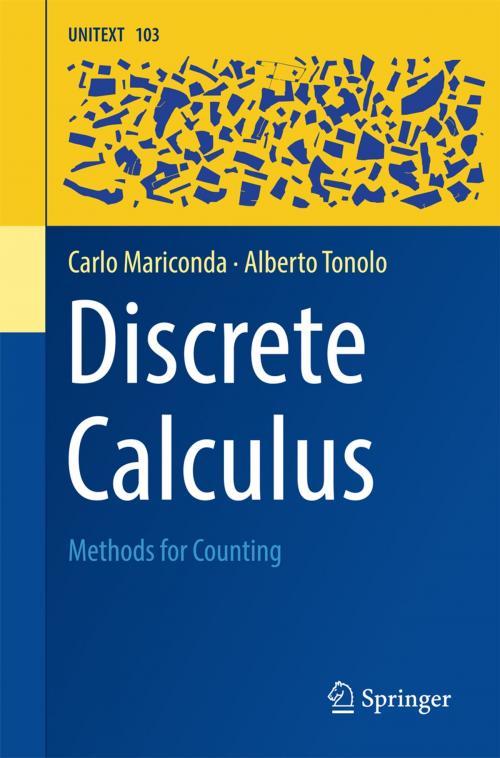Discrete Calculus
Methods for Counting
Nonfiction, Science & Nature, Mathematics, Combinatorics, Mathematical Analysis| Author: | Carlo Mariconda, Alberto Tonolo | ISBN: | 9783319030388 |
| Publisher: | Springer International Publishing | Publication: | December 1, 2016 |
| Imprint: | Springer | Language: | English |
| Author: | Carlo Mariconda, Alberto Tonolo |
| ISBN: | 9783319030388 |
| Publisher: | Springer International Publishing |
| Publication: | December 1, 2016 |
| Imprint: | Springer |
| Language: | English |
This book provides an introduction to combinatorics, finite calculus, formal series, recurrences, and approximations of sums. Readers will find not only coverage of the basic elements of the subjects but also deep insights into a range of less common topics rarely considered within a single book, such as counting with occupancy constraints, a clear distinction between algebraic and analytical properties of formal power series, an introduction to discrete dynamical systems with a thorough description of Sarkovskii’s theorem, symbolic calculus, and a complete description of the Euler-Maclaurin formulas and their applications. Although several books touch on one or more of these aspects, precious few cover all of them. The authors, both pure mathematicians, have attempted to develop methods that will allow the student to formulate a given problem in a precise mathematical framework. The aim is to equip readers with a sound strategy for classifying and solving problems by pursuing a mathematically rigorous yet user-friendly approach. This is particularly useful in combinatorics, a field where, all too often, exercises are solved by means of ad hoc tricks. The book contains more than 400 examples and about 300 problems, and the reader will be able to find the proof of every result. To further assist students and teachers, important matters and comments are highlighted, and parts that can be omitted, at least during a first and perhaps second reading, are identified.
This book provides an introduction to combinatorics, finite calculus, formal series, recurrences, and approximations of sums. Readers will find not only coverage of the basic elements of the subjects but also deep insights into a range of less common topics rarely considered within a single book, such as counting with occupancy constraints, a clear distinction between algebraic and analytical properties of formal power series, an introduction to discrete dynamical systems with a thorough description of Sarkovskii’s theorem, symbolic calculus, and a complete description of the Euler-Maclaurin formulas and their applications. Although several books touch on one or more of these aspects, precious few cover all of them. The authors, both pure mathematicians, have attempted to develop methods that will allow the student to formulate a given problem in a precise mathematical framework. The aim is to equip readers with a sound strategy for classifying and solving problems by pursuing a mathematically rigorous yet user-friendly approach. This is particularly useful in combinatorics, a field where, all too often, exercises are solved by means of ad hoc tricks. The book contains more than 400 examples and about 300 problems, and the reader will be able to find the proof of every result. To further assist students and teachers, important matters and comments are highlighted, and parts that can be omitted, at least during a first and perhaps second reading, are identified.















